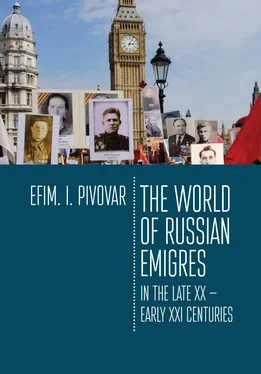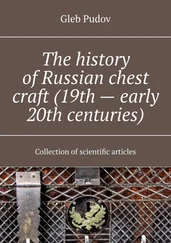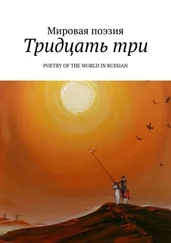This principle, education through knowledge, is the foundation of the activities of Russian higher education institutions, including RSUH, the firstborn humanitarian university in the modern Russia. It is based on, in my opinion, the main elements of culture and true patriotism, i. e. national history, Russian literature, the wealth of world languages, cultures, and scientific theories. In this context, a scientific and cultural dialogue with the Russian world abroad has become an intrinsic part of the university life, including projects and events designed to restore the true historical past of Russia. For example, on March 4, 2011, RSUH and the Russkiy Mir Foundation held a scientific conference The Great Reforms of 1861 commemorating the 150 thanniversary of the emancipations of serfs in Russia. The University was significantly interested in discussing the modern vision of the issue in the context of shaping the history education concept, including the development of questions for the Unified State Exam on history. Before that, under the auspices of the Moscow Patriarchate and the Russkiy Mir Foundation, there was a conference held in the Cathedral of Christ the Saviour on Great Reforms of Emperor Alexander II as a success story of modernization with the participation of scientists and public leaders from the near and far abroad. It should be noted that the Russian emigre community, especially university and law corporations, laid significant emphasis on the era of the 1860s reforms and saw it as an era of law and civil liberties in the country. Therefore, the intellectual circles in the Russian community abroad paying attention to the history of the Great Reforms in modern Russia was another sign of the unity of historical memory, civilizational community of Russia and the Russian world abroad.
The intellectual heritage of the Russian community abroad has been one of the key elements of the society’s consolidation in creating a new historical consciousness in Russia. It was a consequence of global processes at the turn of the century. The current geopolitical situation has led to the emergence of new trends in the development of world intellectual, information, and cultural processes. The concept of a multipolar world, which is becoming increasingly influential, involves the diversity of civilizations and flourishing national cultures that interact and enrich each other on a constructive basis. Russia’s commitment to these principles of international life was formulated back in 2000 in the “The foreign policy concept of the Russian federation”, which proclaimed Russia’s aspiration “to achieve a multi-polar system of international relations that really reflects the diversity of the modem world with its great variety of interests.” [12] Concept of Foreign Policy of the Russian Federation. Moscow 2000, June 28 (2004). In A. D. Bogaturov’s (Ed.) Systemic History of International Relations in four volumes 1918–2003, V.4. Documents (pp. 538–539), Moscow.
At the same time, attention to one’s own culture, awareness of one’s unique historical experience and promotion of such values in global media has become one of the prerequisites for strengthening the international influence of a country.
The President of Russia Vladimir Putin in his Address to the Federal Assembly of the Russian Federation in 2018 noted the growing impact of global processes on the economy and culture of all subjects of international politics and the important role of our country in ensuring a positive vector of global development:
This is a turning period for the entire world and those who are willing and able to change, those who are taking action and moving forward will take the lead. Russia and its people have expressed this will at every defining moment in our history.
As Mr Putin stressed, Russia was consistently developing its foreign policy:
… Our policies will never be based on claims to exceptionalism. We protect our interests and respect the interests of other countries. We observe international law and believe in the inviolable central role of the UN. These are the principles and approaches that allow us to build strong, friendly and equal relations with the absolute majority of countries. [13] Presidential Address to the Federal Assembly (2018, March 1) Retrieved from http://en.kremlin.ru/events/president/news/56957
Highly intensive global cultural dialogue and informational exchange is also taking place between metropolises and the diaspora across the world amplifying their mutual attraction and interest in each other. Ideas of historical, cultural, and civilizational unity, communicated from the metropolis to the diaspora in the media and on the Internet, art, scientific publications exert significant influence on the public opinion of compatriots in communities abroad by actively engaging them in the international diplomatic and cultural dialogue.
Russia in the early 21 stcentury lays special emphasis on the shaping historical consciousness based on traditional and social values, in particular as a factor of consolidation of the Russian society. It addresses challenges of modernization transit in the context of dramatically increasing global financial, economic, and political competition. In this context, the engagement between Russia and the world of Russian compatriots abroad provides ample opportunities and at the same time contradictions and challenges. They arise from the complex structure and heterogeneity of the Russian community abroad with three main segments: Russian-speaking diasporas of the post-Soviet states (the near abroad); several waves of Russian military, political, and economic emigration in the 1920-1980s and their ancestors (the far abroad). There are also migrants of the 20–21 stcentury from Russia and other territories of the former USSR living in different countries and regions across the world. Formally, the last group is part of the Far Abroad community, but it has some significant social and moral differences from the “old” emigration.
The cooperation with compatriots abroad in the last quarter of a century (from the 1980-1990s) was the most fruitful and intense in terms of shaping the national historical consciousness of the Russians. This experience can be seen as a qualitatively important and unique in the Russian history, when a diaspora that existed in almost complete isolation from the metropolis for several decades has given its historical Motherland a huge cultural heritage filling some considerable gaps in the social, political, intellectual, spiritual, and artistic development of the country.
In the 20 thcentury, Russia went through a tragedy of ideological and informational split with its compatriots abroad. It was based inter alia on fundamentally different vision of the national history and cultural traditions. In the USSR, this resulted in a decisive elimination of many names, events, and facts from the scientific and educational environment that did not ht into the official doctrine of “the history of the USSR in the pre-Soviet period” as well as in totally negative views on the Russian emigration and hushing up its contribution to the global culture. On the contrary, the Russian community abroad developed a cult of the pre-Revolutionary period and underestimated the achievements of the Soviet era in many areas, including economy, science, and culture. Nevertheless, from the very start, the Russian emigre community had an idea for renewing the common historical path and reuniting the divided flows of the “river of time” that embraced the history of Russia in its entirety. The events of the Great Patriotic War have shifted significantly the community’s perception of the post-revolutionary emigration. For many people, patriotism, and love for their homeland lost its retrospectivity and vagueness no longer concerning the old or the imaginary new Russia, but an actual country with its advantages and disadvantages. The Soviet authorities also became more tolerant to the representatives of the post-revolutionary emigration, but the development of the opposition movement among the Soviet intelligentsia, which increasingly took the form of political and religious emigration; the ideological support of the opposition from abroad during the Cold War era became a major new watershed dividing the Soviet Union and Russian community abroad. According to the official Soviet doctrine, their relations could not even be close to the system of “metropolis – diaspora”. The Russia abroad in the 20 thcentury was almost completely excluded from the overall picture of the national history and culture.
Читать дальше












